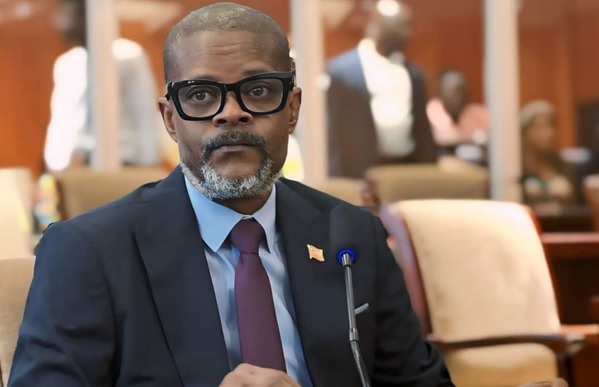MONROVIA, LIBERIA – President Joseph Nyuma Boakai is facing mounting criticism following his decision to appoint Mr. Brahima Kaba, an almost 80-year-old retired foreign service officer, as Ambassador-Designate to Kuwait. Activist Martin K.N. Kollie has labeled the move as an abuse of presidential power and a stark violation of Liberia’s laws on retirement and public service.
By Socrates Smythe Saywon, 0777425285/ 0886946924
saywonsocrates@smartnewsliberia.com
In his hard-hitting commentary titled “Is Boakai Abusing His Presidential Power? Brahima is a retiree, but Boakai appointed him to active service again,” published on Monday, December 23, 2024, Kollie accused President Boakai of recycling aged and ineffective officials at the expense of younger, qualified Liberians. Kollie’s criticism, sent with carbon copies to several national and international organizations, raises serious questions about governance, nepotism, and corruption within the Boakai administration.
“Liberia keeps failing because of actions like these,” Kollie wrote. “The new pension law of Liberia passed in 2017 puts retirement at 60 years old. The 2012 Civil Service Agency Standing Order caps it at 65. Brahima Kaba, almost 80, has already retired and is receiving pension benefits. Yet, he’s being recycled into active service.”
Kaba, a veteran foreign service officer, previously served as Liberia’s Ambassador to Senegal during Ellen Johnson Sirleaf’s administration and under George Weah’s leadership. According to Kollie, Kaba’s reappointment is an affront to Liberia’s merit-based system, which has been undermined by nepotism and political patronage.
“Is Brahima the only Liberian qualified for this role?” Kollie questioned. “Don’t we have young, competent foreign service professionals to take over? Recycling failed, old, and corrupt officials like Brahima shows a lack of vision and commitment to the change Boakai promised during his 2023 campaign.”
Kollie further accused the Boakai administration of prioritizing nepotism over merit. He alleged that Kaba’s reappointment is influenced by his familial connection to Saran Kaba-Jones, a senior official at the Ministry of Foreign Affairs.
“This is political corruption,” Kollie asserted. “Boakai is dashing out strategic public service roles to individuals based on nepotism and influence-peddling. Is this the change he promised? The merit-based system in Liberia is eroded, and the Liberian people deserve better.”
The activist also raised concerns about Kaba’s physical fitness for the role, emphasizing that the aged diplomat “barely walks” and is being placed in an active service role solely to benefit from lucrative diplomatic salaries and privileges.
“Brahima is not just receiving pension benefits; he is being put in a position to double-dip into public funds,” Kollie alleged. “This is not only a waste of taxpayers’ money but a blatant disregard for Liberia’s laws and the principles of good governance.”
Kollie questioned the strategic rationale behind the appointment, asking what new ideas or strategies Kaba could bring to Liberia’s diplomatic mission in Kuwait after over 30 years of service. “What did he achieve during his decades-long tenure that justifies this reappointment?” Kollie asked. “This is business as usual—nothing more.”
The activist’s critique also touched on broader issues plaguing Liberia, including poverty, unemployment, a broken health and education system, and a lack of accountability. He argued that Boakai’s decision to recycle old politicians reflects a failure to address these challenges with fresh perspectives and innovative leadership.
“When Weah was doing these same bad things, we cautioned and warned him until we turned against him,” Kollie noted. “Boakai is repeating the same mistakes. To think that because you are President, you can do just anything is a strategic blunder.”
Kollie’s critique has ignited widespread debate about the future of governance in Liberia under Boakai’s leadership. Many Liberians, particularly those who supported Boakai’s campaign for change, are expressing disappointment in his failure to uphold his promises.
“This is not the change we voted for,” said one disillusioned supporter. “We expected new faces, fresh ideas, and a commitment to meritocracy—not the recycling of old and ineffective officials.”
Kollie concluded his write-up with a strong appeal to President Boakai to reconsider his approach to governance. “Most people who supported Boakai are afraid to tell him these hard truths. But I will tell him. Liberia deserves better, and the Liberian people deserve better.”
The appointment of Brahima Kaba as Ambassador-Designate to Kuwait has become a litmus test for President Boakai’s commitment to transparency, meritocracy, and the principles of good governance. As the criticism continues to grow, the question remains: will President Boakai listen to the voices of his critics and the Liberian people, or will he continue down the path of political patronage and nepotism?







